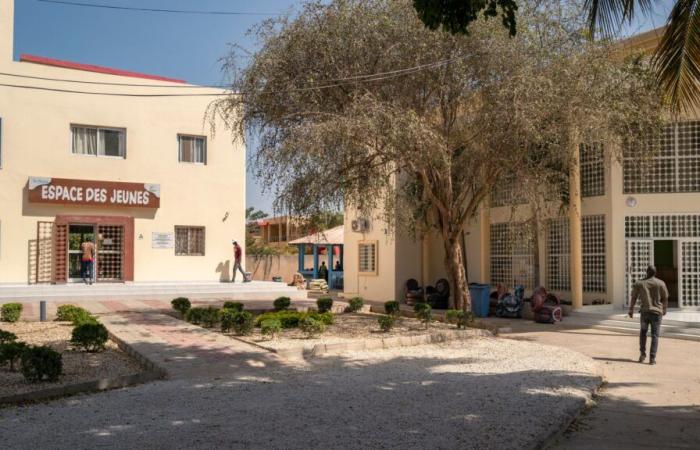In Dakar, the capital of Senegal, the CRCF training and research center is a discreet building, which residents have a hard time telling us. In West Africa, it is however an essential reference in the fight against HIV. In his office, this Tuesday morning, Doctor Rassol Diouf receives Ibra*, an HIV -positive patient who has been attending the health structure for over ten years. He performs here, each quarter, a health examination, before renewing his prescription to benefit from antiretrovirals.
These drugs block the spread of HIV in the body, and prevent AIDS disease from developing. “I have known Doctor Diouf for many years,” says Ibra. He is both my doctor and my psychologist. As soon as I have anxiety about treatment, or my daily life, I confide in him. »»
Demantle of the USAID
Since its creation in 2005, the CRCF has been able to weave strong bonds of trust with its patients. It must be said that Senegal is a model, in Africa, in the fight against HIV. It is the first country on the continent to have adopted free antiretroviral drugs in 2003.
“But the system is based on a precarious balance, because the Senegalese government does not sufficiently finance the fight against AIDS, nuances Doctor Khoudia Sow, anthropologist at the CRCF. We have to rely on the funding of foreign donors, at more than 70%. »»
However, at the end of February 2025, a political decision clearly tipped the balance on the wrong side. In the United States, the administration of Donald Trump acted the dismantling of the USAID, the Federal Agency for International Development Aid, and suppressed almost all of its funds abroad. The American institution alone represented almost half of world humanitarian aid. In Senegal, she funded, up to 28%, the national AIDS fight program.
A risk that the HIV virus will start up
Among other resources, USAID allowed health structures to obtain antiretroviral drugs. From now on, Senegalese health structures are plunged into uncertainty. Among their main donors, the organization of the World Fund temporarily ensures the succession, in order to maintain stocks of antiretrovirals and guarantee their gratuitousness. But what will he be in three months?
“Many of our patients are panicked and assail us about questions,” continues Doctor Khoudia Sow. In Senegal, only 53% of the population is covered by health insurance. If antiretrovirals are no longer free, many people will have to count on family solidarity to buy it, and they may have to stop treatment. »»
The risk is also great to see the HIV epidemic going upwards after decades of mobilization to contain it. In Senegal, the virus affects only 0.3% of the inhabitants, and in particular affects homosexual people. A double penalty for this population already very marginalized in the country. In fact, the Senegalese Criminal Code punishes with one to five years’ imprisonment the so-called “unnatural with an individual of his sex”.
To support this vulnerable population, the American PEPFAR program [plan d’aide d’urgence à la lutte contre le sida à l’étranger] made it possible to deploy hundreds of mediators in the country, thanks to the financing of the USAID. The decision of the Trump administration at the end of January interrupted all the contracts of these local actors overnight.
“It is dramatic because the mediators are those who help HIV -positive people to overcome shame and to cross the door of the hospital, laments Doctor Rassol Diouf. They participate in the screening of populations at risk, ensure their medical follow -up … They also do prevention, so that the virus is not transmitted to children. Without their moral support, many patients could give up. And let yourself die, in silence. »»
*The first name has been changed.






